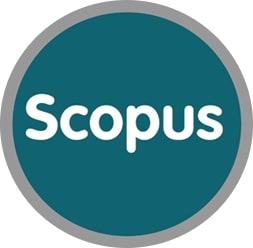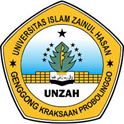Dialectics of Jurisprudence, Science, and Tradition Analysis of the Accuracy of the Qibla Direction of Sentot Ali Basya Cemetery
DOI:
https://doi.org/10.5281/zenodo.17388710Keywords:
Qibla Direction, Old Grave, Fiqh, Science, TraditionAbstract
This research examines the direction of the old grave of Sentot Ali Basya, which tends to accurately align with the qibla compared to the new cemetery in the city of Bengkulu. The ironic condition where the qibla direction in the new cemetery cannot be as accurate as the old cemetery becomes the uniqueness of this study. Data on the accuracy of the qibla direction in the cemetery were obtained through field observations, while social-religious data related to the development of fiqh schools, the level of knowledge, and Islamic traditions in the community of Bengkulu were explored through historical literature on Islam in Bengkulu. This research found that the people of Bengkulu in 1885, the year of Sentot Ali Basya's death, already had a high civilization in the fields of fiqh, science, and tradition. The people of Bengkulu in the 19th century adhered to the Shafi'i fiqh school. This school entered Bengkulu through preachers, including Sentot Ali Basya. In this school, rules regarding the qibla direction of the deceased were highly regarded, to the extent that a corpse not facing the qibla had to be reoriented towards the qibla, even if it required exhuming the grave. In terms of science, knowledge of navigation was still prevalent among the people of Bengkulu, partly because many residents worked as fishermen and also due to the indirect contribution of navigation methods, including the qibla direction, brought by traders sailing to Bengkulu.
Downloads
References
Adil, Muhammad. “Fikih Melayu Nusantara masa Kesultanan Palembang Darussalam.” AHKAM : Jurnal Ilmu Syariah 18, no. 2 (2018). https://doi.org/10.15408/ajis.v18i2.9649.
Adil, Muhammad, dan Muhamad Harun. “Penyebaran Fikih Mazhab Syafi’i di Nusantara: Studi Sosio-Historis Masa Kesultanan Palembang Darussalam.” Al-Manahij: Jurnal Kajian Hukum Islam 14, no. 2 (2020). https://doi.org/10.24090/mnh.v14i2.3263.
Agus Akhmadi. “Moderasi Beragama dalam Keragaman Indoensia.” Jurnal Diklat Keagamaan, 2019.
Aliyah, Munfiqotul. “Arah Kiblat Pemakaman Raden Fattah di Demak.” Skripsi UIN Walisongo Semarang, 2021.
Andi Jusran Kasim, Supriadi Supriadi, dan Aswar Anas. “PERSPEKTIF MASYARAKAT TERHADAP AKURASI ARAH KIBLAT DENGAN PENGGUNAAN ALAT MODERN.” QISTHOSIA : Jurnal Syariah dan Hukum 2, no. 1 (2021). https://doi.org/10.46870/jhki.v2i1.122.
Azami, Yasin Syafii, Abid Nurhuda, dan Murjazin Murjazin. “Reactualizing The Meaning Of Tasawuf: An Introduction To Education.” Nusantara Education 2, no. 2 (23 Desember 2023): 46–52.
Azis. “Islamisasi Nusantara Perspektif Naskah Sejarah Melayu.” THAQAFIYYAT: Jurnal Bahasa, Peradaban dan Informasi Islam 16, no. 1 (2016).
Daroini, M. Irkham. “Problematika arah kiblat makam lama dan makam baru : studi kasus komplek Makam Bergota Kota Semarang.” Undergraduate (S1) thesis, Universitas Islam Negeri Walisongo Semarang. 33, no. 1 (2022).
Fajri, Muhammad, dan Rahma Amir. “Komparatif Software Accurate Times dan Hisab Rashdul Qiblah Harian dalam Penentuan Arah Kiblat.” Hisabuna: Jurnal Ilmu Falak 2, no. 3 (2021).
Fatimah dan Badrun Taman. Arah kiblat pemakaman. Bengkulu: Koperasi Konsumen Al Muawanah Syariah, 2022.
Hakim, Lukman. “Akurasi Arah Kiblat pada Pemakaman se-Kota Salatiga.” Al-Bayan; Jurnal Ilmu Al-Qur’an dan Hadist 6, no. 1 (2023).
Hakim, Lukmanul. “HISTORIOGRAFI ISLAM MELAYU-NUSANTARA: Dari Sejarah Konvensional Menuju Sejarah Total.” Turãst: Jurnal Penelitian & Pengabdian 5, no. 2 (2017).
Hanipudin, Sarno, Nur Alizatul Nasihah, dan Taqiyudin Subki. “Analysis of the Impact of Instilling Religious Moderation on Students’ Social Attitudes.” Nusantara Education 2, no. 1 (27 Juli 2023): 19–24.
Hikmiyah, Hawa Hidayatul. “Efforts to Form Sakinah Families for User Clients Drug Rehabilitation Houses in East Java.” NUSANTARA: Journal Of Law Studies 2, no. 2 (26 Desember 2023): 137–46.
Jalil, Abdul, dan Hosen Hosen. “QIBLA JURISPRUDENCE: Deviation of Mosques’ Qibla in Pamekasan Madura.” Islamuna: Jurnal Studi Islam 7, no. 2 (2020). https://doi.org/10.19105/islamuna.v7i2.3381.
Japarudin. “Sejarah Dakwah di bengkulu.” Jurnal Adab dan Dakwah IAIN Bengkulu 1, no. 2 (2016).
Musofa, A Abas. “Bengkulu dalam Jaringan Pelayaran Pantai Barat Sumatra Abad XVIII-XIX M.” IAIN Bengkulu, 2018.
Musofa, Ahmad Abas. “SEJARAH ISLAM DI BENGKULU ABAD KE XX M (Melacak Tokoh Agama, Masjid dan Lembaga [organisasi] Islam).” Tsaqofah dan Tarikh: Jurnal Kebudayaan dan Sejarah Islam 1, no. 2 (2016).
Nizam, Ahmad. “PERBEDAAN PENDAPAT DALAM PENENTUAN ARAH DAN WAKTU IBADAH (Perbandingan Metodologi Syar’i dan Sains).” Muqaranah 5, no. 1 (2021). https://doi.org/10.19109/muqaranah.v5i1.9206.
Nurhayati, Dwi Astuti Wahyu, dan Novi Tri Oktavia. “Relevance Of Al Mawardi’s Reflection In The Development Of Islamic Economic Activities.” Journal of Nusantara Economy 1, no. 1 (10 Desember 2022): 48–58.
Nurlinda. “Al-Ghazali’s Views On The Economy And Development Of The Ummah.” Journal of Nusantara Economy 1, no. 1 (28 Desember 2023): 25–35.
Pasaribu, Munawir. “Pembelajaran Ilmu Falak di Fakultas Agama Islam Universitas Muhammadiyah Sumatera Utara.” Al-Marshad: Jurnal Astronomi Islam dan Ilmu-Ilmu Berkaitan, 2020. https://doi.org/10.30596/jam.v6i2.5251.
Rakhmadi, Arwin Juli, dan Junaidi Junaidi. “QIBLA ACCURARY OF THE MAHLIGAI AND PAPAN TINGGI TOMB COMPLEXES AT CENTRAL TAPANULI.” Journal of Contemporary Islam and Muslim Societies 6, no. 1 (2022). https://doi.org/10.30821/jcims.v6i1.11077.
Rimapradesi, Yulia, dan Sidik Jatmika. “Tabut: Ekspresi Kebudayaan Imigran Muslim India (Benggala) di Bengkulu.” Sosial Budaya 18, no. 1 (2021). https://doi.org/10.24014/sb.v18i1.12124.
Suparno, Suparno. “Dismissal Of Civil Servants Those Who Commit Office Crimes Based On The Court Ruling Which Has Permanent Legal Force.” NUSANTARA: Journal Of Law Studies 2, no. 2 (26 Desember 2023): 127–36.
Yaqin, Ahmad Ainul. “KONFLIK SOSIAL TERHADAP PERUBAHAN ARAH KIBLAT MASJID NURUL IMAN BALANG KARANGLO KLATEN SELATAN.” Jurnal SMART (Studi Masyarakat, Religi, dan Tradisi) 4, no. 1 (2018). https://doi.org/10.18784/smart.v4i1.587.
Downloads
Published
How to Cite
Issue
Section
License
Copyright (c) 2023 Badrut Taman, Doki Hermansyah, Rindom Harahap, Agutini, Japarudin, Imam Mahdi

This work is licensed under a Creative Commons Attribution-ShareAlike 4.0 International License.















